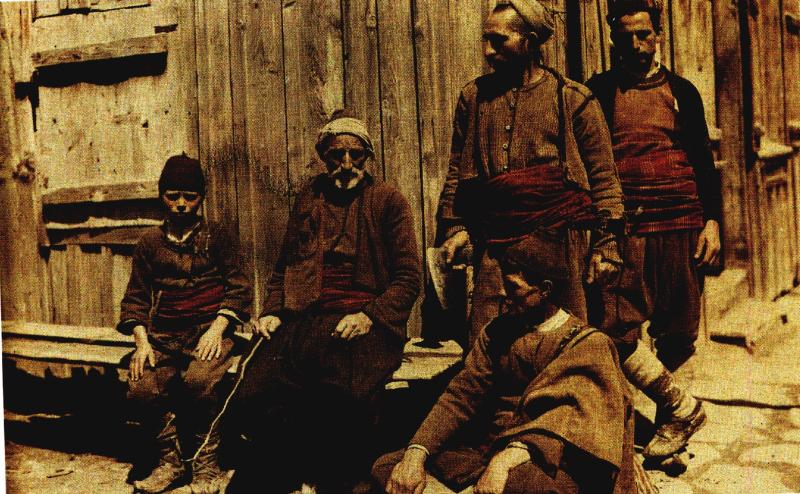My mail and emails are filled daily with hundreds of studies, academic journals, new books and articles from numerous publications focusing on Muslims. Everything about the Muslim subject is studied and parsed to the minute detail with volumes upon volumes of subsequent publications citing and re-examining what everyone had said on every topic. The volume of studies produced about the Muslim subject is mindboggling and the list expands beyond anyone’s own ability to keep up with it. Yet, the volumes of studies available at our fingertips have not made it possible to know Muslims any better; rather they have added to the structural and compounded ignorance of the subject matter. It seems that when more studies of the Muslim subject are undertaken, the less knowledge of Muslims we have! Why are studies of the Muslim subject leading to less knowledge and awareness of the Muslim him/herself?
Knowledge production is reflective of the social, political, racial, economic and religious forces in the U.S. that are dominating and exercise hegemonic control over the institutions assigned and funded to produce the problematized Muslim subject in writing. The think tank industrial complex has managed to produce massive studies but keeping the Muslim the unknown in it. Some solid scholarship is produced by careful scholars but on the whole they tend to be the exception, having limited circulation and rarely promoted by the corporate media and political elites.
More importantly, knowledge production about the Muslim subject is not value neutral and is undertaken for the most part to solve imperial problems resulting from prolonged hegemonic discourses that are connected to resources. How does it feel to be studied but not known and being structurally silenced! The bulk of the studies are undertaken with the Muslim subject being a problem that needs to be solved, and how to stop him/her from being violent! The questions and the problem-solving endeavors will introduce a myriad of issues but not the Muslim him/herself into the discussion, for their place is defined as a mere subject in an experimental lab not allowed independent agency .
Everything about the Muslim subject is examined in the same way a lab specimen is researched: constantly observed, recorded and handled by the technicians. Current lab scholarship on the Muslim subject is producing detailed “knowledge” that is lacking depth and reality since the focus is on providing an answer to an imperial problem rather than on the subject him/herself.
The questions are so predictable and include violence, women rights, despotic rule, supposed irrationality, minority rights, corruption and last but not least is “Why do they hate us?”! All these questions are legitimate in normal circumstances and should be welcomed if the focus is on the Muslim arriving at self-discovery and criticism. However, these questions and many like them are intended to document and study the Muslim subject without him/her being party to it. On the contrary, the intention of these studies is to produce the opposite of the knowledge that should allow a deeper understanding and awareness of the diverse needs of some 1.4 billion people inhabiting the Earth with the rest of humanity.
The funding directed at studying the Muslim subject has spun a cottage cheese industry with an interconnected web of foundations, research centers, think tanks, data collection nodes, translations services, and a set of open and invite-only conferences. Every data point on the Muslim is examined and analyzed, then added to the mountains of studies to strengthen the hegemonic abilities of narrative to control and dominate through knowledge production. Here, researching the Muslim subject is not equal to knowing the person or persons considered in the research. When more research of this type is undertaken, the less knowledge we have of the Muslim subject since the intent is to solve the imperial problem and not appreciate the uniqueness and complexity of the human being supposedly studied.
The problem is not new and Edward Said’s Orientalism tackled it in reference to Napoleon’s Egypt campaign which included a French scientific expedition to document the country so as to facilitate the colonial project. Studying the Muslim subject without his/her knowledge, not having the best interest of the group or community in mind and without the consent to be transformed into an academic one-dimensional content on a page, is an ethical crisis. What type of Muslim are you looking for and examining for your grant, book deal, tenure promotion, media appearance, CVE training, securitization project, language training, data mining, Halal market expansion, elections strategies and weapons sales?
Whatever type of Muslim you are seeking , a researcher and a study is available to shed some light on it! However, don’t waste too much time reading the material or deciphering the footnotes since for the most part these are copied and replicated from earlier imperial studies and often reproduced word for word. A Qur’an expert is ready to give you everything you need to know about the text and the people who read it, but don’t waste your time asking this expert to read one line of the Qur’anic text in Arabic or even possess a high level of proficiency in the English language to fully grasp the translation he/she uses.
Knowledge of the Muslim subject is produced within a war on terrorism and Islamophobia imaginary where the conclusion in every study is predetermined. The Muslim is studied to fit into the mega narrative that is constructed about the subject before the subject is even approached to be studied and the assumptions underlying the methodology already determined the outcome. A Muslim subject outside of the existing and problematic terrorism and Islamophobic hypothesis does not exist, or if it does then it is shadowed by the heavily embedded imperial knowledge producers. A Muslim is studied but not known since the purpose of the study from the inception is an imperial one and not in arriving at deeper awareness and appreciation of the subject him/herself.


